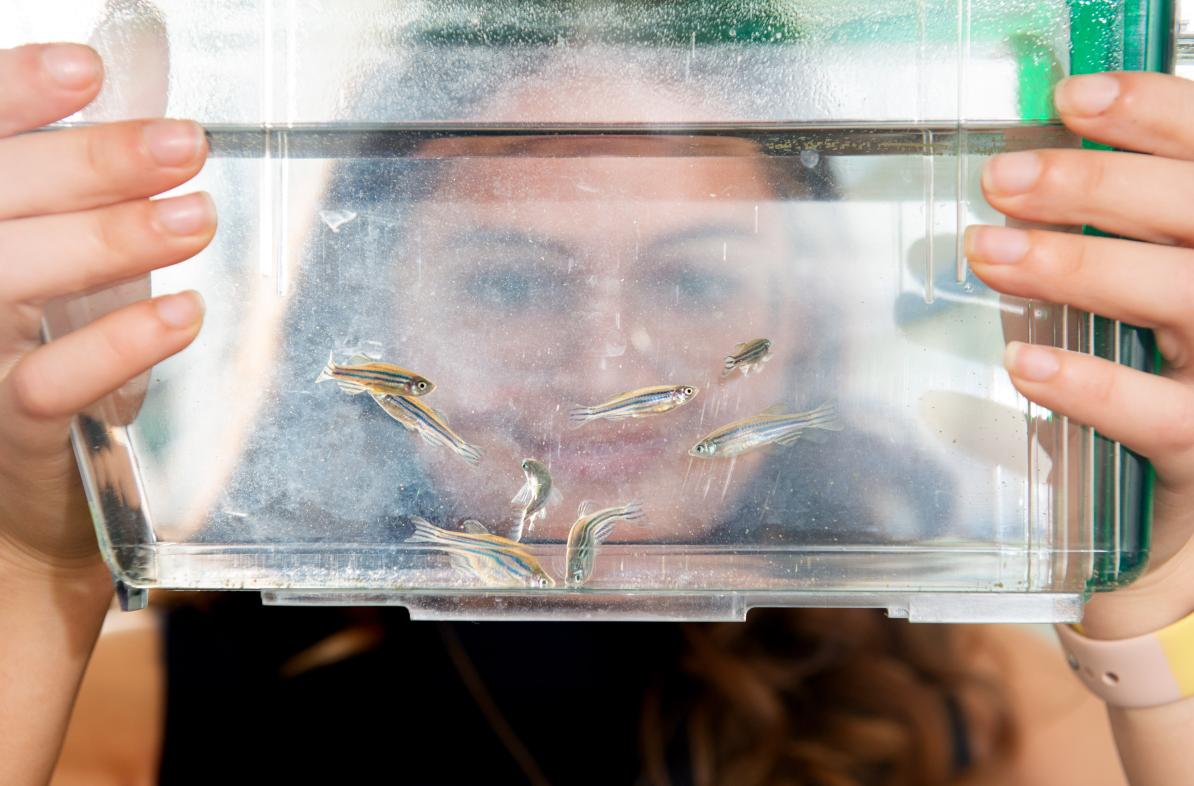That’s exactly the kind of research students at UW-Eau Claire are conducting under the guidance of Dr. Bradley Carter, associate professor of biology and an instructor of courses in the neuroscience program.
“Zebrafish provide a good model for examining brain development and function,” Carter says about this aquatic species that shares a high percentage of genes with humans.
“These fish are small and easy to handle in large numbers. They have similar growth patterns to humans, and they grow fast, allowing researchers to see results in many types of experiments over a short timeframe,” he adds.
Student research team member Noah Felix, a junior biology and Spanish major from Eleva, has spent his time on this project focusing on the neurological impact of environmental contaminants.
“The data about these contaminants in zebrafish can be related to humans, as the genome has many similarities,” Felix says. “Studies like this one could lead to better understanding of our health and inform environmental regulation of certain chemicals.”
Carter says the science itself is exciting, but for him, it’s all about the students.
“It’s exciting for me to mentor these undergraduates — they are involved at all different levels of the research while having a clinical connection to our colleagues at Mayo Clinic Health System. I enjoy helping students grow their talents and interests through research and supporting them as they develop into the next generation of scientists and healthcare professionals,” Carter says.
Watch the video below to learn more about this neuroscience-based project and the unique academic and pre-professional experiences Blugold students in Carter’s lab are gaining.



